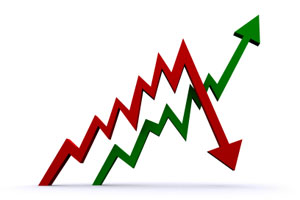
Angel investors in the U.S. are making a comeback of sorts with total dollars still on the rise, but funders are shying away from early-stage investments and leaning toward expansion financing, according to a new report from the UNH Center for Venture Research.
Healthcare investments were 2nd only to software in taking the most investment dollars, and although the pool of total investors appears to be shrinking, the remaining angel funders made up for the loss with more investment activity, analysts said. Total U.S. angel investment in 2012 increased 1.8% year-over-year, hitting about $22.9 billion paid out to more than 67,000 entrepreneurial ventures, but less of that money went to the youngest companies.
"It is possible that given the robust returns in the public equity markets, some angels may have reallocated their portfolios and reduced their angel investing activity but those angels that continued to invest remained quite active," UNH CVR director Jeffrey Sohl said in prepared remarks. "This decrease in seed/start-up stage is of concern since that is the stage of need for our nation’s entrepreneurs."
Funds poured into seed and start-up phases declined from 42% in 2011 to 35% in 2012 and early stage investments dropped from 40% to 33%. Investors leaned toward expansion financing, which increased from 15% in 2011 to 29% in 2012.
The UNH CVR report didn’t break down its numbers by smaller segments, but a report released earlier this year by investment data firm CB Insights reported that angel investments in medical device companies increased 50% in 2012, including seed financing.
Medtech angel- and seed-round financing (typically $1.5 million or less) jumped dramatically in 2012, accounting for about 27% of all investment in the medical device industry, according to CB Insights. That’s a 50% increase compared with 2011.
In 2012 there were 457 medtech angel- and seed-round deals worth a total of more than $187 million, for an average deal size of about $1.1 million, analysts said. The year-over-year increase in the number of deals is a positive sign, easing away fears that early investors had fled medtech since the economic collapse of late 2008.

